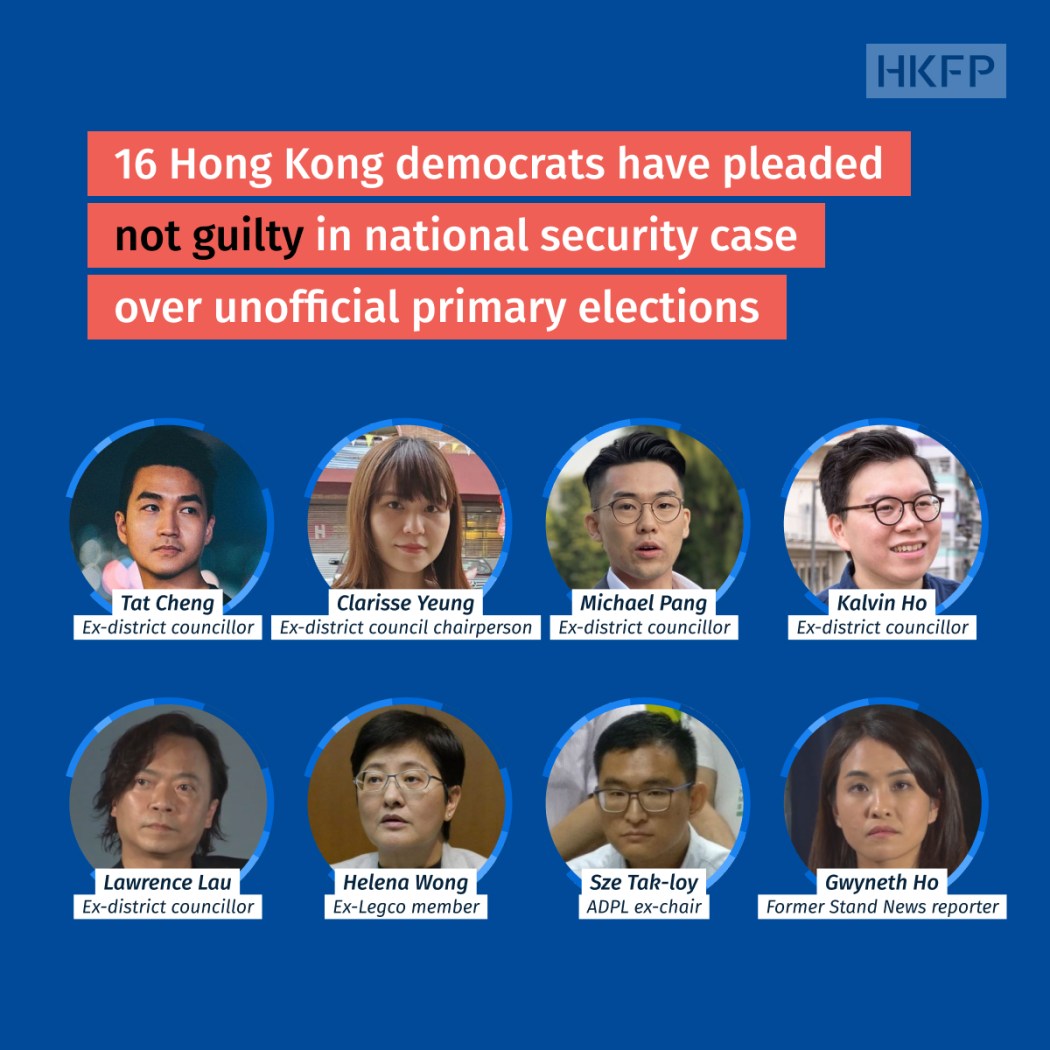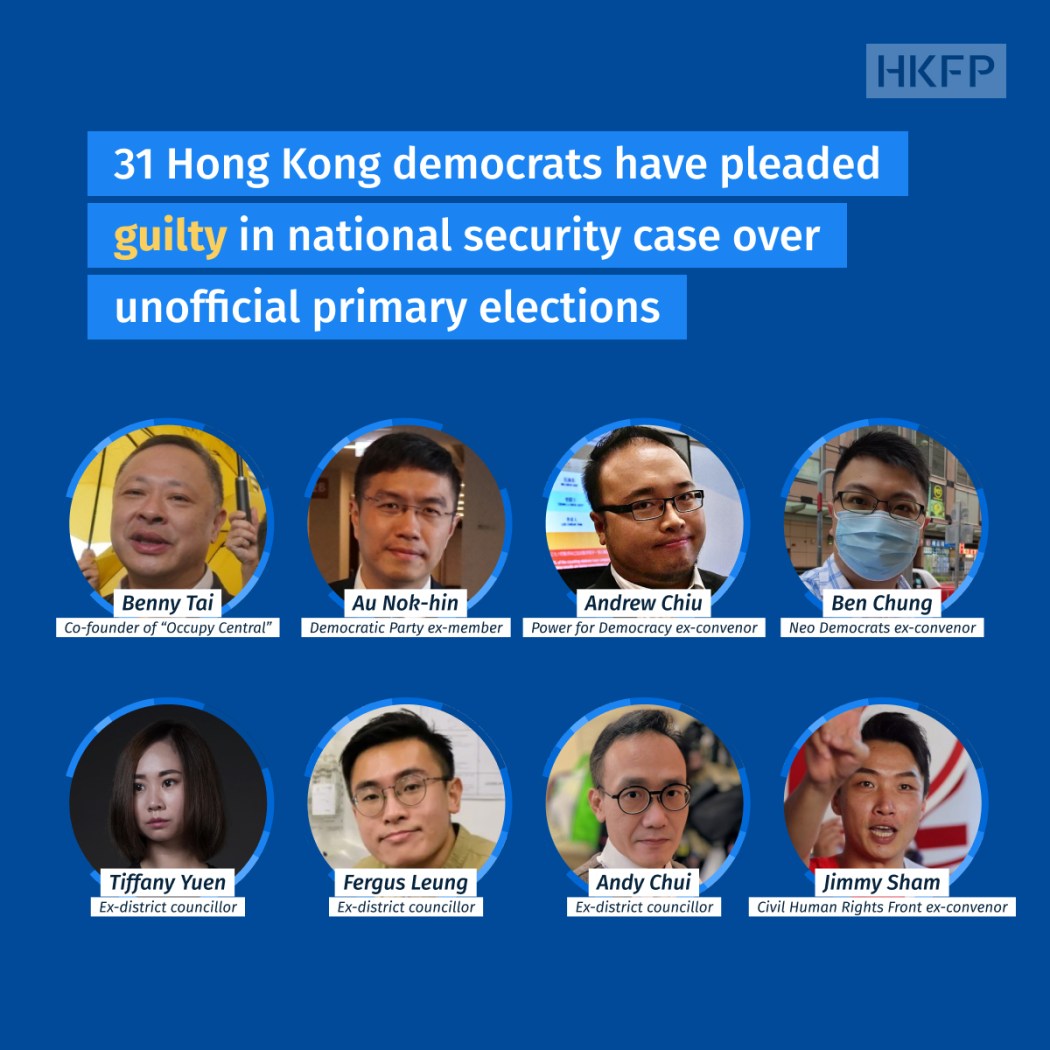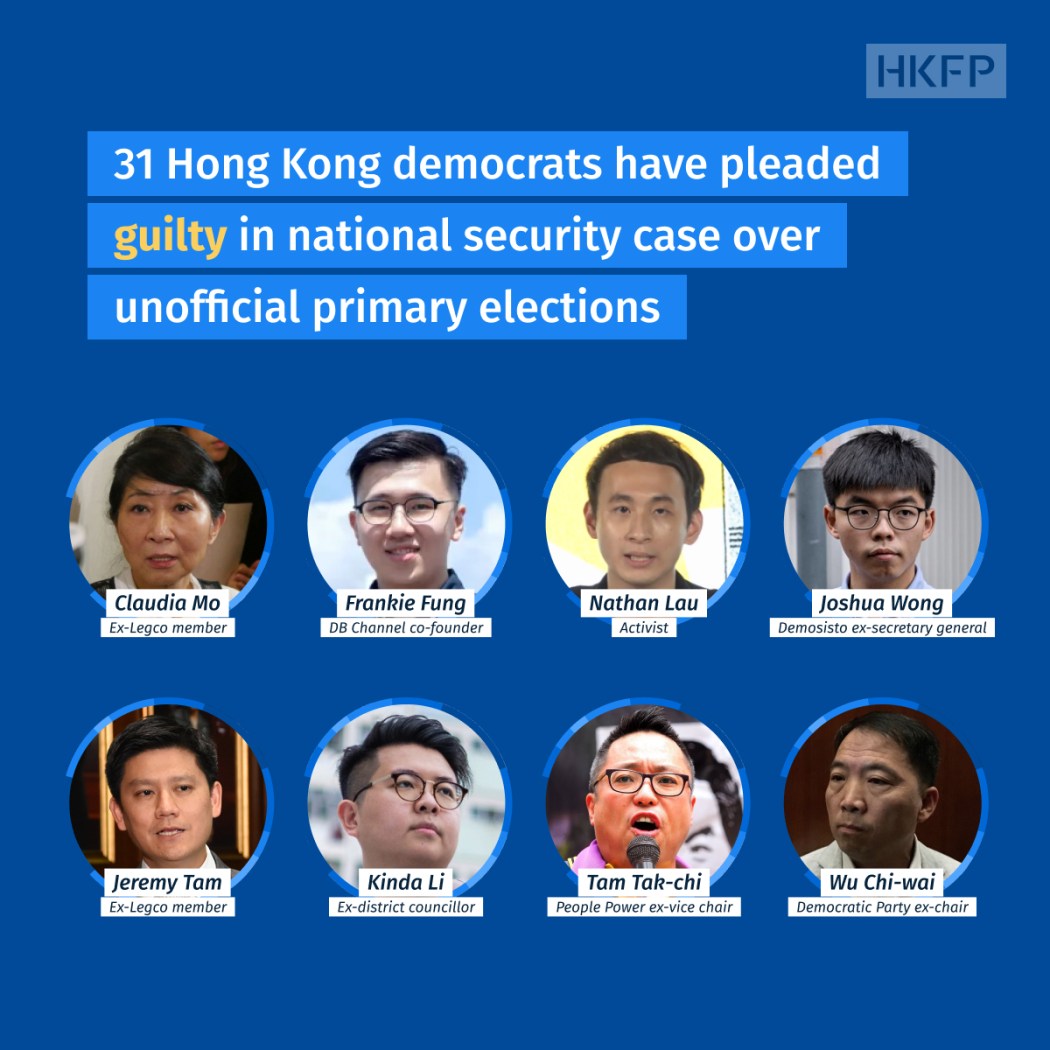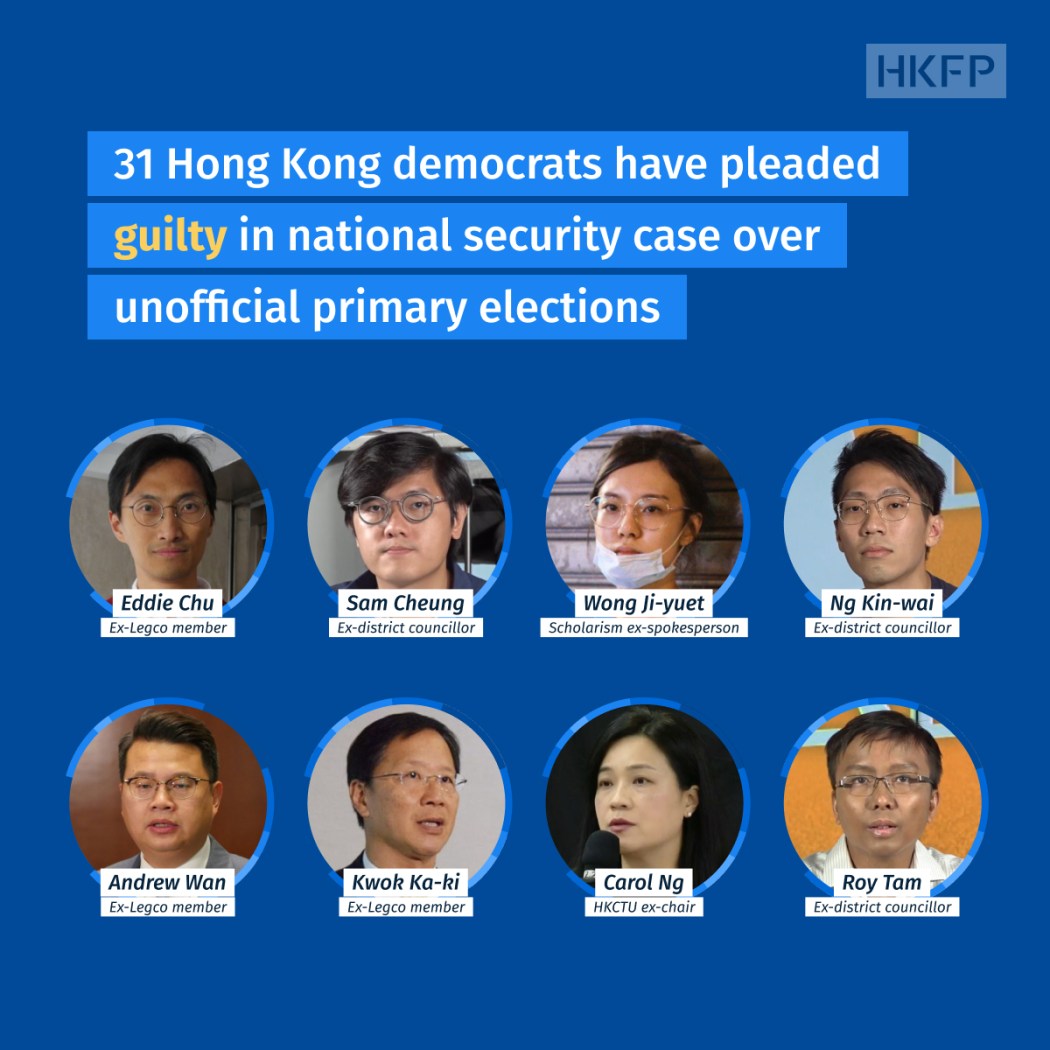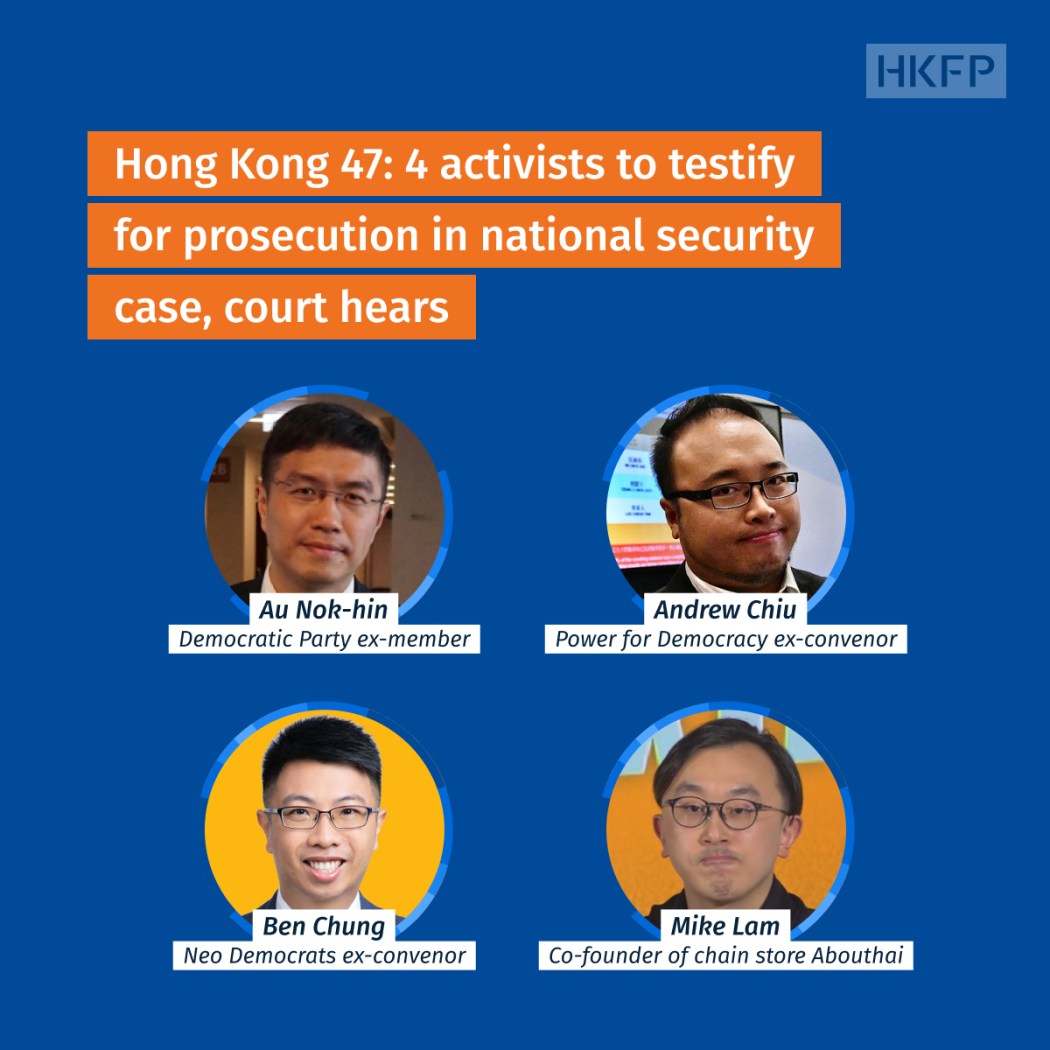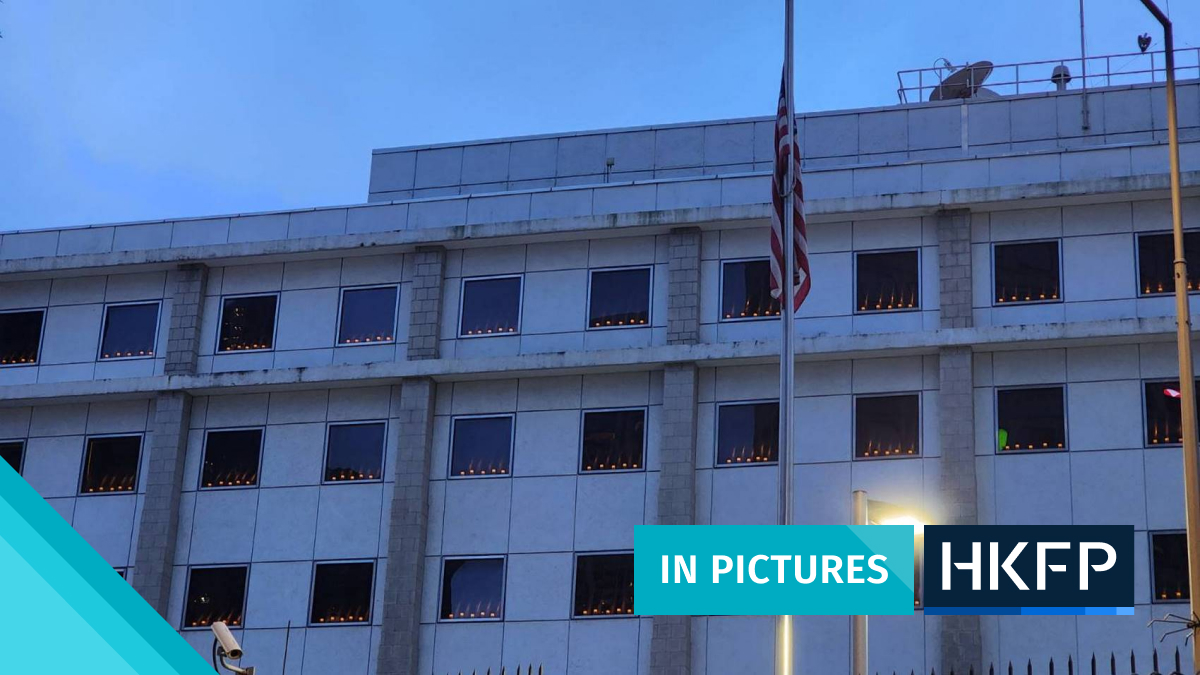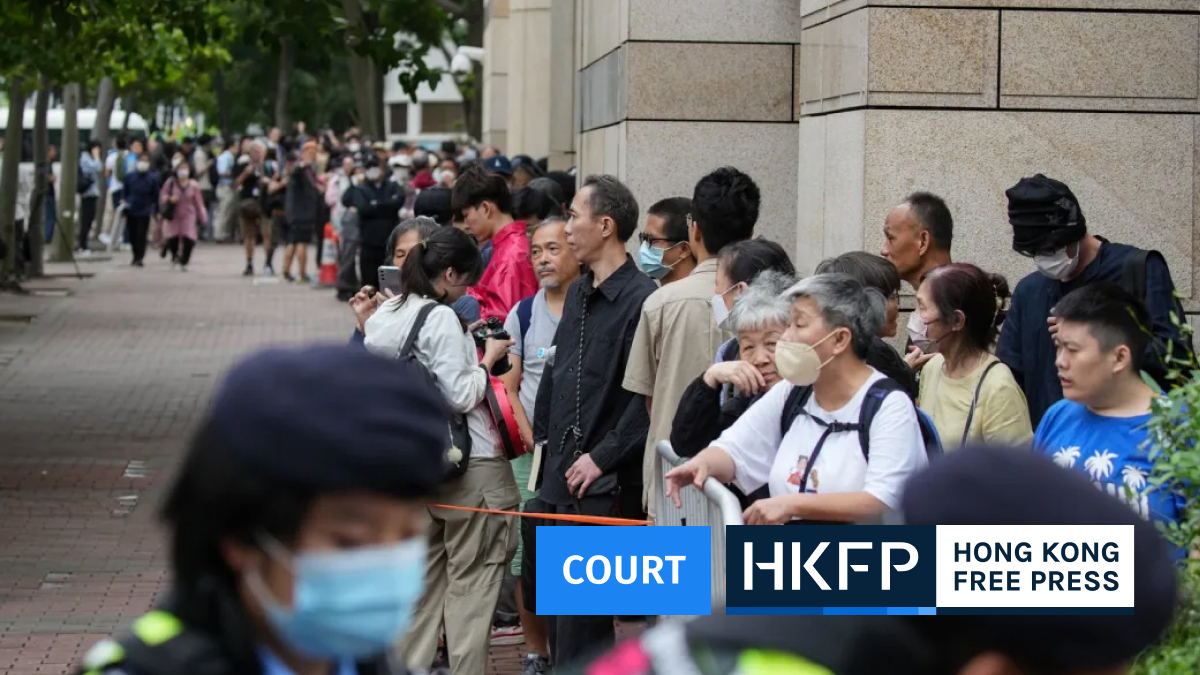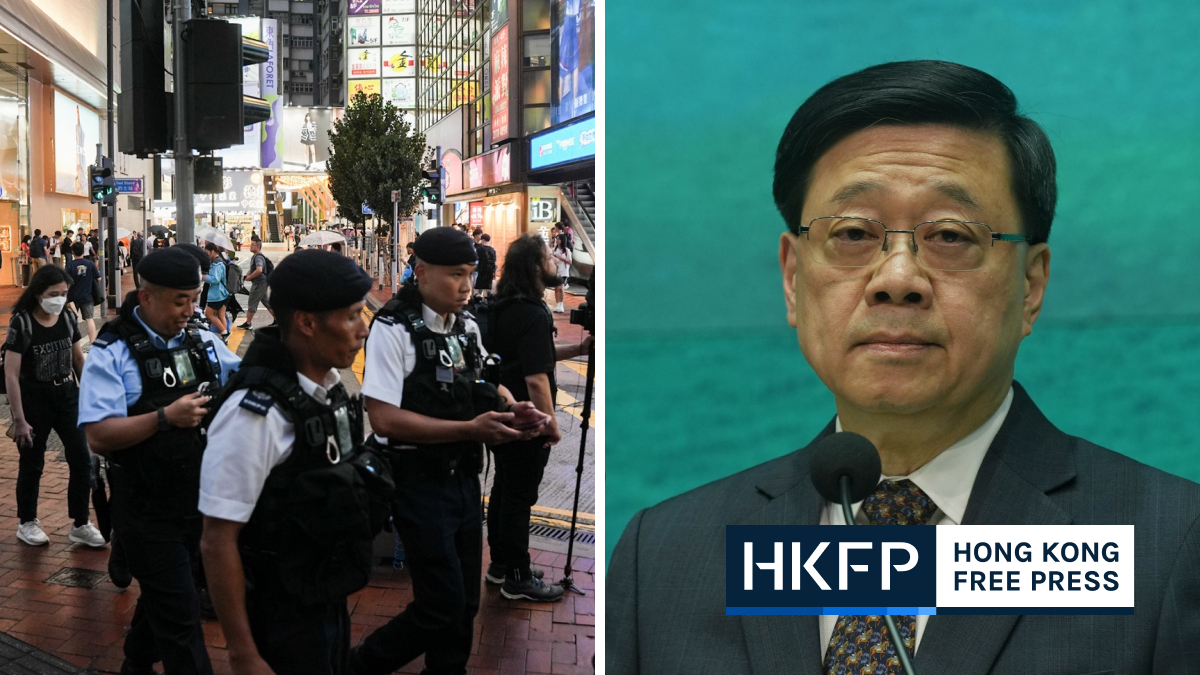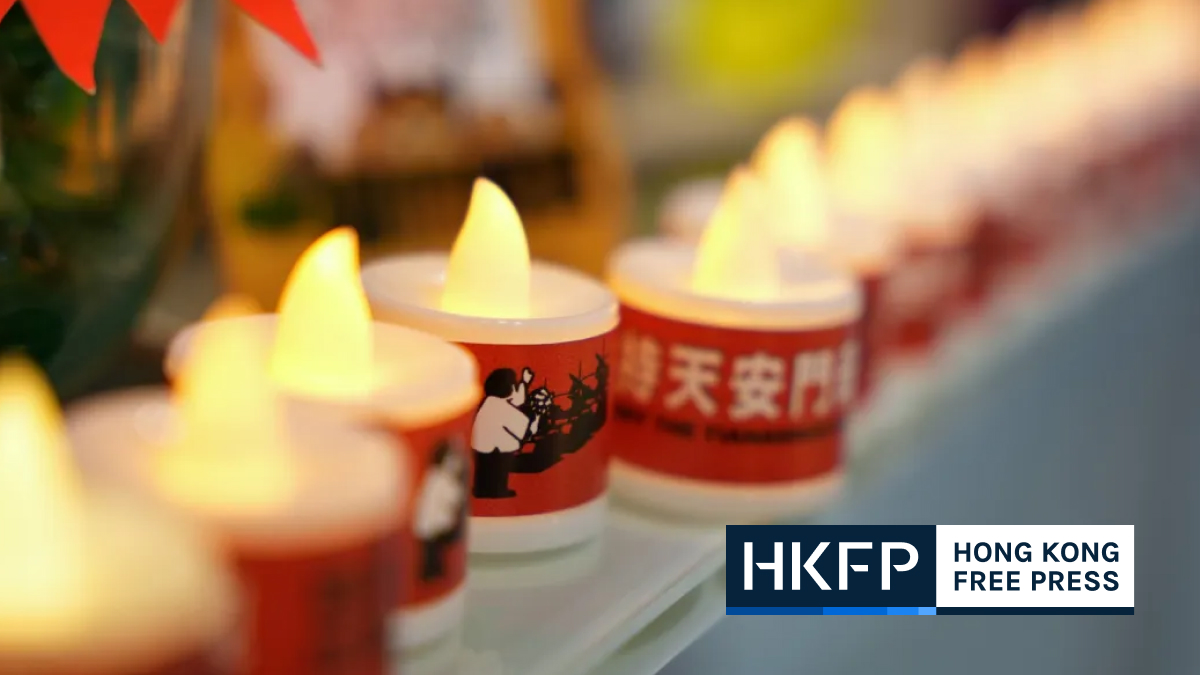Former Hong Kong lawmaker Au Nok-hin, who is testifying at the trial of a landmark national security case against 47 democrats, has said he never treated activist Gordon Ng as one of the organisers of the unofficial legislative primary election in question.

His statement contradicted the prosecution’s case, which depicted Ng as having played a key role in “planning, organising and advancing” the alleged conspiracy to commit subversion by initiating a voting campaign, advocating for the holding of election forums and contributing to the design and arrangement of the polls.
The lengthy trial of 16 democrats who denied the charge of conspiracy to commit subversion entered day 23 of 90 on Friday. Defence counsels continued to take turns in cross-examining ex-Democratic Party politician Au, who was summoned by the prosecution as their first live witness around three weeks ago. He is the first of four accomplice witnesses to take the stand.
At the centre of the case is an unofficial primary election held in July 2020, which aimed to help the opposition camp win majority control of the legislature. The democrats were said to have intended to abuse their legislative powers to indiscriminately veto bills, forcing the chief executive’s resignation and a government shutdown.
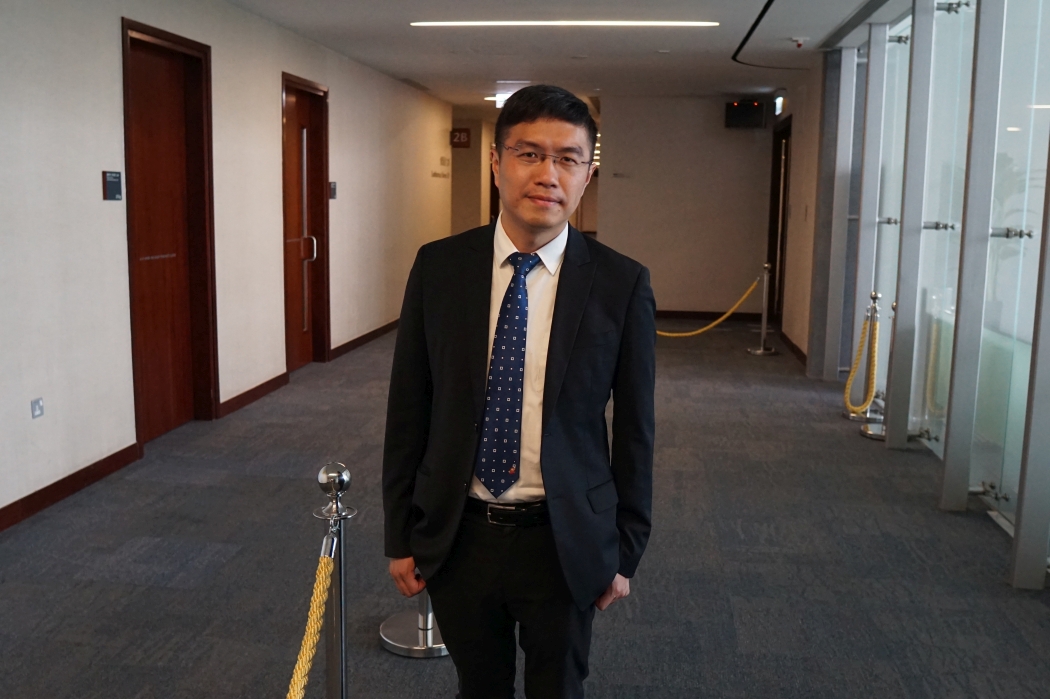
The offence under the Beijing-imposed security law could land them up to life imprisonment if convicted. Twenty-nine defendants have pleaded guilty earlier and are awaiting sentencing after the no-jury trial concludes in front of a handpicked panel of judges.
Representing former district councillor Kalvin Ho, barrister Anthony Yuen grilled Au on several “concepts” that appeared in the case, including the term “mutual destruction” and “constitutional weapon.” He also asked the politician about an online declaration titled “Resolute Resistance, Inked Without Regret,” signed by 33 defendants in the case.
Yuen went on to ask Au about a voting strategy known as “Say No to Primary Dodgers,” put forward by defendant Ng under the pseudonym “Lee Bak Lou.” He was said to have called on voters not to cast their ballots in the Legislative Council election for candidates who opposed – and did not take part in – the primary election, as well as those who refused to be bound by the results of the unofficial polls.
Prosecutors said earlier that Ng’s voting campaign formed the “backbone” of the primaries, and that the defendant was involved in devising the primary election plan with key organiser Benny Tai, who used to teach law at the University of Hong Kong.

Judge Alex Lee, one of the three judges presiding over the case, interrupted Yuen’s questioning and said Au had no connection to the tactic. The barrister said that, although Au did not initiate the campaign, he was an organiser of the primary.
When the judge asked Au if he was involved in any way, the former legislator replied: “No, I have never considered Lee Bak Lou as part of the organisers.”
‘Original objective’
Much of the discussion at the trial that began in early February centred on lawmakers’ power to veto budget bills enshrined in the Basic Law, as the prosecution argued the democrats had intended to abuse such constitutional power indiscriminately.
Articles written by legal scholar Tai, in which he described seizing majority control in the legislature as a “constitutional weapon of mass destruction,” were repeatedly cited at the trial.
On Friday, Au told the court that there was a “clear difference” between him and Tai, as he focused coordination work within the pro-democracy camp on the aim of maximising their chances of winning the legislative race.

“For Tai, from the very beginning, he had concentrated on how to use the power constitutionally,” he said.
Representing Helena Wong and Lam Cheuk-ting, who served in the Legislative Council, lawyer Erik Shum argued there was an “important dividing line” that Tai’s “35+” coordination strategy was only concerned with organising democrats in the legislative race so that no ballots would go to waste. What the elected democrats would do after achieving a majority was not the actual objective, he said.
Au responded by saying that was his “original objective.”
The trial will continue next Tuesday.
The high-profile case was first mentioned in court in March 2021, when most of the defendants were remanded into custody after failing to meet the stringent threshold for bail imposed on national security suspects. At present, only 13 of 47 democrats are on bail.
In June 2020, Beijing inserted national security legislation directly into Hong Kong’s mini-constitution – bypassing the local legislature – following a year of pro-democracy protests and unrest. It criminalised subversion, secession, collusion with foreign forces and terrorist acts, which were broadly defined to include disruption to transport and other infrastructure. The move gave police sweeping new powers, alarming democrats, civil society groups and trade partners, as such laws have been used broadly to silence and punish dissidents in China. However, the authorities say it has restored stability and peace to the city.
Support HKFP | Policies & Ethics | Error/typo? | Contact Us | Newsletter | Transparency & Annual Report | Apps
Help safeguard press freedom & keep HKFP free for all readers by supporting our team

latest national security stories
In June 2020, Beijing inserted national security legislation directly into Hong Kong’s mini-constitution – bypassing the local legislature – following a year of pro-democracy protests and unrest. It criminalised subversion, secession, collusion with foreign forces and terrorist acts, which were broadly defined to include disruption to transport and other infrastructure. The move gave police sweeping new powers, alarming democrats, civil society groups and trade partners, as such laws have been used broadly to silence and punish dissidents in China. However, the authorities say it has restored stability and peace to the city.
Support HKFP | Policies & Ethics | Error/typo? | Contact Us | Newsletter | Transparency & Annual Report | Apps
Help safeguard press freedom & keep HKFP free for all readers by supporting our team


